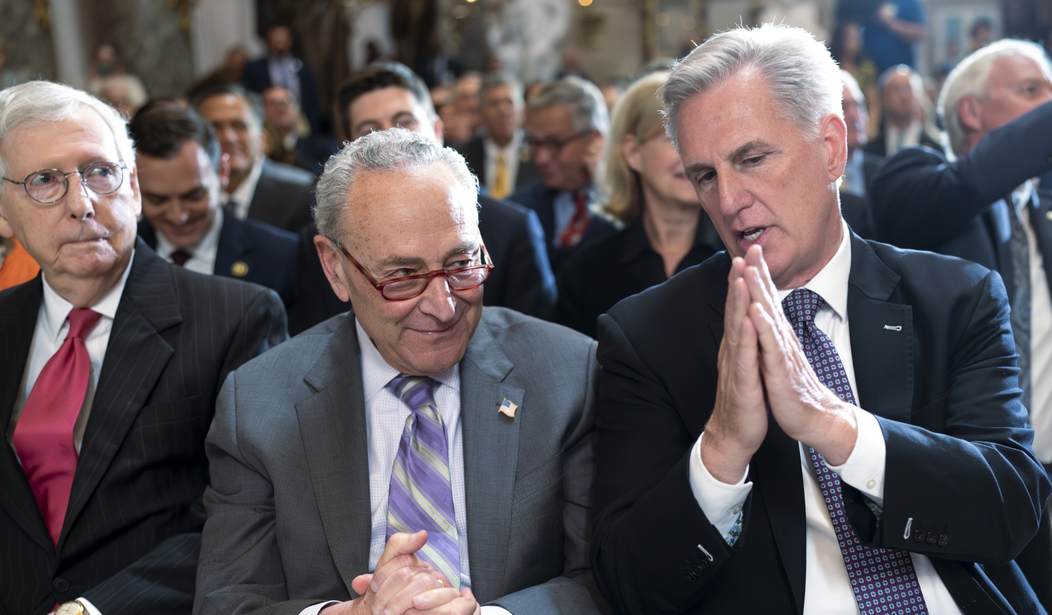The Fiscal Responsibility Act of 2023 suspended the debt limit and imposed new statutory caps on discretionary spending for the next two years. The Committee for a Responsible Federal Budget (CFRFB) congratulated House Republicans for success in reducing deficits; the Congressional Budget Office (CBO) estimates that the Act will reduce deficits by $1.5 trillion over the next decade relative to baseline estimates. But before we break out the champagne, we should note that this legislation fails to stop unsustainable growth in public debt. The CBO estimates that with this legislation in place, debt subject to the debt limit will grow from $31 trillion to $51 trillion over the next decade, and the CBO projects that debt will grow to more than 200 percent of GDP by midcentury.
The explanation for this debacle is that Congress has experienced debt fatigue. For two decades, the statutory fiscal rules in place have been circumvented and suspended, including balanced budget provisions, debt limits, deficit limits, discretionary spending caps, PAYGO rules, etc. It is time for Congress to admit defeat, face the fact that our fiscal rules don’t work and the budget process is irrevocably broken.
Instead of tinkering with these failed fiscal rules, we should learn from the success of other countries, such as Switzerland, which have enacted effective fiscal rules and budget processes. The Swiss debt brake was enacted as a constitutional amendment through referendum, with support from 85 percent of Swiss citizens. With this debt brake in place over the past two decades, the Swiss cut debt as a share of GDP in half to about 30 percent. Swiss-style fiscal rules have been successfully enacted to restore sustainable levels of public debt in other European countries and in the European Union.
There are several reasons for the success of Swiss-style fiscal rules in restoring sustainable levels of public debt. The debt bake applies to a comprehensive budget, including all expenditures, with special provisions limiting spending on Social Security. The rules limit the growth in federal spending to the long-run growth in national income. The rules are flexible in achieving fiscal balance over the business cycle and in providing for emergency spending. Deficits incurred during a recession must be offset by surplus revenue in periods of economic expansion. A separate fund was established to achieve this balance within a six-year time frame.
Perhaps the most important reason for the success of the Swiss debt brake is that it is a constitutional measure embraced by citizens and elected officials alike. The constitutional language is straightforward, easily understood by citizens, and is linked to more detailed statutory enabling legislation.
If the United States had enacted Swiss-style fiscal rules three decades ago, we could have reduced debt as a share of GDP, just as the Swiss have. However, enacting Swiss-style fiscal rules today will be more challenging, as the recent debt ceiling battle reveals. There is little hope that Congress will enact effective fiscal rules either as statutory or constitutional measures.
Citizens should not accept defeat from a debt-weary Congress. Citizens can follow the lead of Switzerland and incorporate a Fiscal Responsibility Amendment in the Constitution. Article V gives citizens, as well as Congress, the right to propose amendments. In fact, citizens and their state representatives have been proposing Fiscal Responsibility Amendments for more than half a century; in 1979, two-thirds of the states had proposed such amendments. At that point, Congress was required to call the amendment convention, but Congress failed to fulfill this ministerial duty under Article V.
This year, citizens may finally see some light at the end of this tunnel. House Budget Committee Chairman Jody Arrington (R-TX) introduced HCR 24, which would require Congress to count these state resolutions and call the amendment convention. State attorneys general will also submit a mandamus suit claiming that Congress has failed to fulfill its obligation to call the convention. For too long, Congress has suffered from debt fatigue, and it is now up to citizens and their state representatives to exercise the power granted to them under Article V of the Constitution. We need not depend on our debt-weary elected officials in Congress.
Barry Poulson ([email protected]) is a policy advisor with The Heartland Institute.













Join the conversation as a VIP Member